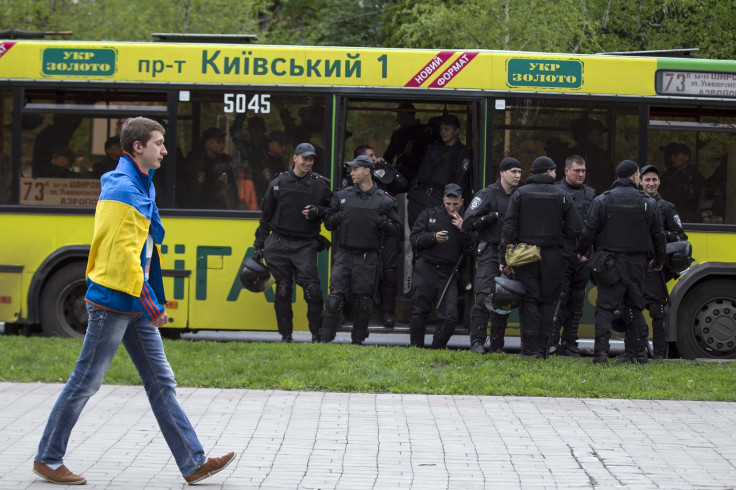Bring The Heat: Poll Shows Americans Want More Sanctions On Russia

A study by the Pew Research Center and USA Today shows that a majority of Americans across a range of demographics support increased sanctions against Russia. Overall, 53 percent of Americans support increased sanctions on Russia for their role in the crisis, while 30 percent favor sending military aid to Ukraine.
The research was undertaken from April 23-27 among 1,501 participants. The U.S. and European Union have levied one round of economic sanctions against Russia already, but increasing tensions in eastern Ukraine have prompted the West to roll out another wave of sanctions aimed at officials and entities close to Russian Vladimir Putin.
“The goal is not to go after Mr. Putin personally. The goal is to change his calculus with respect to how the current actions that he’s engaging in in Ukraine could have an adverse impact on the Russian economy over the long haul, and to encourage him to actually walk the walk and not just talk the talk when it comes to diplomatically resolving the crisis in Ukraine.”
The initial rounds of sanctions were largely brushed off by the Russian officials affected by it. Some American politicians say they didn’t go far enough. Thirty-five percent of those surveyed by Pew agree, saying President Obama has not been tough enough with Russia. Sentiment over Obama’s handling of the Ukraine situation has largely remained unchanged since late March, when Pew last surveyed Americans’ views on the situation. Only slightly more Americans think Obama has not been tough enough now as compared with the March survey.
As the situation has developed, however, more Americans across the board favor sanctions and/or military aid.
The new round of sanctions will freeze assets in the U.S., ban business with those listed and deny them visas for entrance into the United States. Peter Baker at the New York Times points out that the sanctions will also target Russian tech.
“Moreover, the United States will cut off the export or re-export of American-made products to 13 of the companies and deny export licenses for high-technology items that could contribute to Russia’s military capabilities.”
According to the Pew study, sanctions are favored over sending military aid to Ukraine. Only 30 percent of respondents favored sending weapons to the struggling Ukrainian government.
The more important people think the Ukraine crisis is to the U.S., the more likely they are to favor either economic sanctions or military aid. 48 percent of people who said the events in Ukraine are very important to the U.S. however said sending weapons was the way to go. An overwhelming 73 percent of respondents who thought Ukraine was very important favored increased sanctions.
The research shows that the older the respondents are, the more important they think the Ukraine crisis is to the United States. Forty-one percent of 50-64-year-olds thought it was very important, the most of any group. After that, in the 65+ group, favor for sanctions and perceived level of importance of the crisis drops.
Significantly more wealthy and higher-educated participants favored sanctions and/or military aid in Ukraine. Democrats and Republicans both support increased sanctions, by 58 and 55 percent, respectively. Ten percent more republicans than democrats support sending military aid to Ukraine. More republicans also thought Ukraine was more important to the U.S. than Democrats, also by a 10 percent margin. Under a third of independents thought the crisis was important to the U.S., most viewed it as somewhat or not very important at all.
© Copyright IBTimes 2024. All rights reserved.












